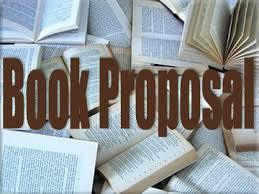Can Someone Tell Me What BS Means?
Before teaching college theology/religious studies, I taught college academic ESL (English as a second language) writing for twenty-four years. I taught students whose first or best language is not English. One day at the start of class, I wrote on the board: "You cannot BS your way through the writing proficiency exam" (a graduation requirement). Then I asked, "Can someone tell me what BS means?" My students, third year pharmacy majors, looked at me like deer caught in the headlights. One brave soul raised his hand and confidently guessed, "bachelor of science." I said that was one meaning but not in this sentence.
I explained the meaning of 'bull' and 'shit,' and 'bullshit' and BS. We laughed. The idiomatic expression 'bullshit' snowballed into a very educational and lively Q & A on vocabulary related to bodily functions that they better know as future pharmacists. They learned the meaning of feces, stool specimen, diarrhea, crap, poop, bloated, bowel movement, constipation, void, urinate, piss, number one, number two, and many more.
They took copious notes of everything I wrote on the board. When class was over, they swarmed around me like bees on honey, wanting more. This spontaneous teaching and learning moment inspired my 2008 student textbook, English for Pharmacy Writing and Oral Communication. How did I write a first-time "winning" book proposal and land a book contract with a major international publishing house? This is how I did it!
Steps to Writing a Winning Book Proposal
1. - Research and study samples of book proposals specific to your genre.
2. - Be familiar with and follow the book proposal submission guidelines of the publishing house that might be interested in your book.
3. - Provide the scope and intent of your book.
4. - Demonstrate the need for your book. Include stats, data, and research.
5. - Discuss the relevancy and timeliness of your book.
6. - Identify your audience. Who will read/use your book?
7. - Show how your book is different from others and why you are the person to write it.
8. - Know your competition and similar books in the market.
9. - Provide a table of contents.
10. - Include a sample chapter.
Once you have studied sample book proposals, start tackling yours. While my students wrote in-class essays and final exams, I wrote my proposal. It took me about four months to write my proposal. Share your proposal draft with a colleague or friend. They can provide insight and offer suggestions.
Stood Out From Others
My book proposal was strong because it was evidence-based and need-based. With research findings, including my grant-funded published original research studies on vocabulary and writing skills, I demonstrated the need for my book. The feedback from all nine proposal reviewers was overwhelmingly positive. The feedback indicated that my book was a "long overdue," "wonderful idea" that "fills an important need in the curriculum." There was a "market in the field of pharmacy" for my book. The book "would be of use to those students and practicing pharmacists who wish to improve [their] English skills."
My book stood out from others in the market. No pharmacy language communication book designed specifically for pharmacy students, pharmacists, and pharmacy technicians whose first or best language is not English existed. My learner-friendly, straightforward, and interactive/integrative book met that need.
Landing the Contract and Writing the Book
I submitted my book proposal in November 2005. I landed the book contract in March 2006. While writing my book proposal, my book draft, and the final book, I raised my family, taught full-time, and was the assistant director of the university writing center. I also trained for my first 50-mile ultramarathon. Three months before getting the book contract, I started a new graduate program in theology.
I met with my editorial team and the senior acquisitions editor in August 2006. I submitted my first draft chapter in September 2006, then submitted two chapters every two months. I spent one year writing the draft of a 13-chapter book, and another eight months editing and finalizing the book. Two months before the book was published in July 2008, voice over professionals recorded the interactive audio components of every chapter.
Tips for Writing Your Book
You have secured your first book contract. Now, it's time to start writing. Keep these tips in mind.
1. - Agree on a sensible chapter(s) submission schedule/deadlines with your editor(s).
2. - Follow the chapter outline(s) you provided in your proposal.
3. - If you have other commitments, write in bits & pieces anywhere. I wrote in my office, at home, at my son's baseball games, and in the car on the long drives to and from ultramarathons.
4. - Stay physically active. Do what works for you. By the time my 400- page book was published, I had trained for and completed four 50-mile ultras. I got some of my best ideas for the chapters while running.
5. - Be patient and disciplined.
What's Your Book Idea?
Writing a book proposal, landing a book contract, and writing the inspired book requires a lot of legwork, expertise, experience, and time commitment. Editors and publishers will express interest in a book proposal that showcases your innovative idea, tells a story, and addresses an unmet need. Eight years ago this July a book that was inspired by my students was published. I have since acquired other experiences and expertise. I hope to write another winning book proposal. Perhaps for that memoir or novel that keeps whispering, "Write me." What has inspired you? What's your book idea? Write a winning book proposal. Although I do not know this to be true, I suspect that one cannot BS one's way through a book proposal either. Do your homework, write, and be patient.
"If the book is true, it will find an audience that is meant to read it."
- Wally Lamb

